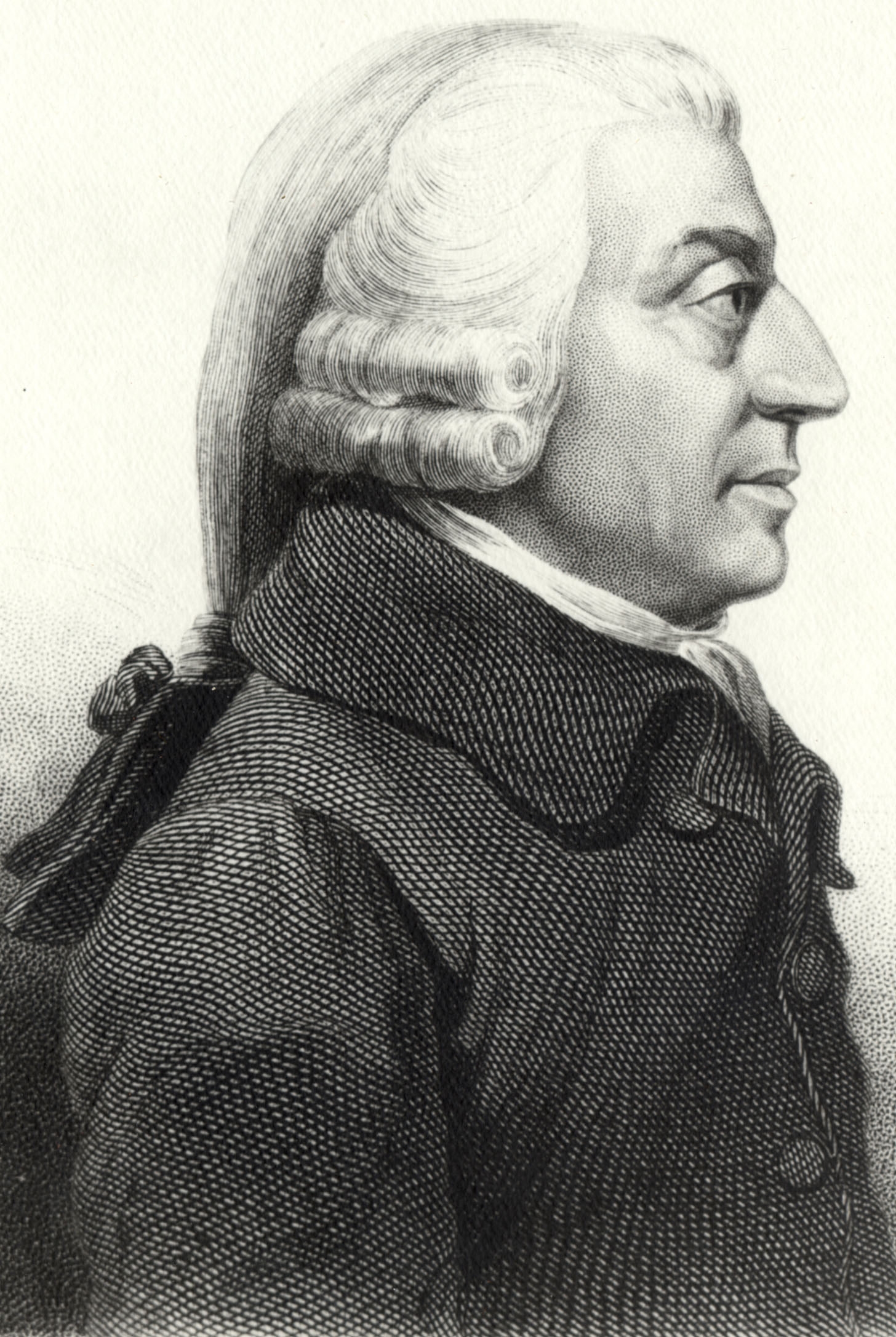Fuente: Smith, Adam. La riqueza de las naciones. Edición de Carlos Rodríguez Braun. Editor digital: Titivillus. Página 321
Fuente: La riqueza de las naciones, Libro IV.
Frases célebres de Adam Smith
Fuente: Citado en Amate Pou, Jordi.Paseando por una parte de la Historia: Antología de citas. Editorial Caligrama, 2017. ISBN 9788417321871. p. 43.
Fuente: La riqueza de las naciones
Fuente: Smith, Adam.La riqueza de las naciones, Libro I, Capítulo 8: De los salarios del trabajo, página 94.
Fuente: La riqueza de las naciones.
“En realidad, la atracción o el afecto no son más que simpatía de la costumbre.”
Fuente: Citado en Amate Pou, Jordi.Paseando por una parte de la Historia: Antología de citas. Editorial Caligrama, 2017. ISBN 9788417321871. p. 42.
Adam Smith Frases y Citas
An Inquiry into the Nature and Causes of the Wealth of Nations. Volume I
Adam Smith: Frases en inglés
Fuente: (1776), Book II, Chapter I, p. 313 (see opportunity cost).
Fuente: (1776), Book V, Chapter I, Part III, p. 820.
Section III.
The Theory of Moral Sentiments (1759), Part VI
Fuente: (1776), Book IV, Chapter II, p. 490.
Fuente: (1776), Book IV, Chapter I, p. 479.
Fuente: (1776), Book I, Chapter VIII, p. 80.
Fuente: (1776), Book V, Chapter I, Part IV, Conclusion, p. 881.
Fuente: (1776), Book V, Chapter I, Part III, p. 845.
“But bounty and hospitality very seldom lead to extravagance; though vanity almost always does.”
Fuente: (1776), Book V, Chapter III, Part V, p. 987.
Fuente: (1776), Book IV, Chapter V, Digression, p. 572.
Fuente: (1776), Book I, Chapter VIII, p. 97.
Fuente: (1776), Book V, Chapter II, Part II, p. 896.
“Hatred and anger are the greatest poison to the happiness of a good mind.”
Section II, Chap. III.
The Theory of Moral Sentiments (1759), Part I
Fuente: The Wealth of Nations (1776), Book IV, Chapter II
“China is a much richer country than any part of Europe.”
Fuente: (1776), Book I, Chapter XI, Part III, (First Period) p. 221.
Fuente: (1776), Book IV, Chapter V, paragraph 82.
Fuente: (1776), Book I, Chapter IV, p. 34.
Fuente: (1776), Book II, Chapter III, p. 377.
Fuente: (1776), Book V, Chapter III, Part V, p. 1012.
“Monopoly of one kind or another, indeed, seems to be the sole engine of the mercantile system.”
Fuente: (1776), Book IV, Chapter VII, Part Third, p. 684.
Chap. I.
The Theory of Moral Sentiments (1759), Part IV
Fuente: (1776), Book IV, Chapter II
Fuente: (1776), Book I, Chapter XI, Part II, p. 202 (See also Thorstein Veblen).
Chap. II.
The Theory of Moral Sentiments (1759), Part V
Section III, Chap. II.
The Theory of Moral Sentiments (1759), Part I
